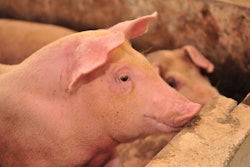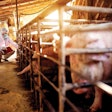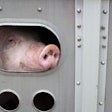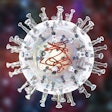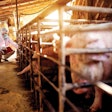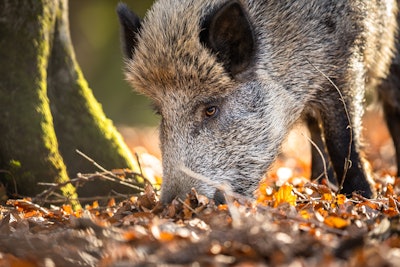
In the northwest of Italy, La Spezia has become the 14th province in Italy to confirm the presence of the African swine fever (ASF) virus when a wild boar found dead in a forest there tested positive.
The official notification to the World Organisation for Animal Health (WOAH) brought the number of provinces in Italy affected by ASF to 14. First cases on the Italian mainland occurred in the northwest of the country in January 2022.
La Spezia is located in Liguria, a region in the northwest of the country, and on the Mediterranean coast. Many previous ASF cases in wild boar have been detected in other provinces of this region — Genova and Savona.
Latest update from the regional veterinary authority IZSAM puts the total number of ASF-infected wild boar in Italy so far at 1,779 (as of March 25). Cases have been confirmed in eight regions of the country.
Since the authority’s update on March 12, further cases in this population were detected in Emilia-Romagna and Lombardy in the north, in Lazio (near Rome), and the northwestern region of Piedmont, as well as in Genova.
According to the same source, the number of ASF outbreaks in the Italian domestic pig population remains unchanged at 21.
ASF outbreak total in European wild boar close to 1,800
Total ASF outbreaks among the European wild boar population so far this year had reached 1,789.
This is according to the latest update on the animal disease situation from the European Commission (EC; as of March 17). Its Animal Disease Information System covers notifiable animal diseases in European Union (EU) member states, and selected adjacent states.
So far in 2024, 20 countries have recorded one of more ASF outbreaks in wild boar.
With a total of 420, Poland has registered the highest total, followed by Italy (388), Bulgaria (197), Latvia (184), Lithuania (131) and Hungary (122).
All of these countries recorded further cases since the previous EC update (March 8), as did Bosnia-Herzegovina, Croatia, Germany, Moldova, Romania, Serbia, Slovakia and Ukraine.
Also registering new ASF cases in wild boar with WOAH over the past 10 days have been the Czech Republic (Czechia) and North Macedonia.
During the whole of 2023, the outbreak total in wild boar recorded by the EC was 7,903, with cases confirmed in 20 European countries.
Moldova records first cases in domestic pigs
So far this year, 70 ASF outbreaks in backyards and on farms have occurred in seven countries, according to the EC’s System (as of March 17).
First cases of the year in this population have recently been confirmed in Moldova, so the country total has risen to eight.
Each registering the most outbreaks for the year to date — 22 — are Romania and Serbia, followed by Bosnia-Herzegovina with 16.
For comparison, the EC System recorded a total of 4,513 outbreaks in this population in 16 European states in 2023.
Further detail on disease developments are provided in official notifications from the national veterinary authorities to the WOAH.
In Bosnia-Herzegovina, five backyard herds were confirmed with ASF over the period February 11-21. With the largest herd comprising 58 animals, a total of 88 pigs were directly impacted by these outbreaks — all in the Republic of Srpska.
Four latest outbreaks in Romania involved 29 backyard swine.
Offering the hope of breeding more disease-resistant pigs in future, new European research has identified a gene that helps animals recover from ASF infection.
View our continuing coverage of the global African swine fever situation.

